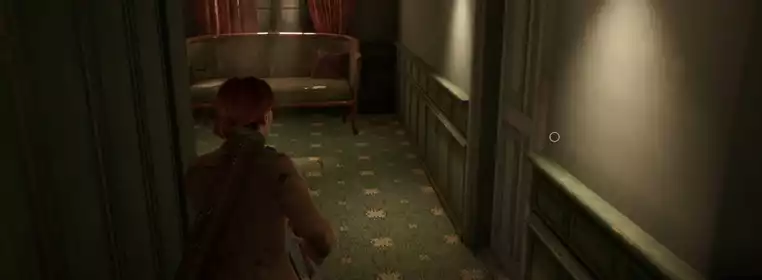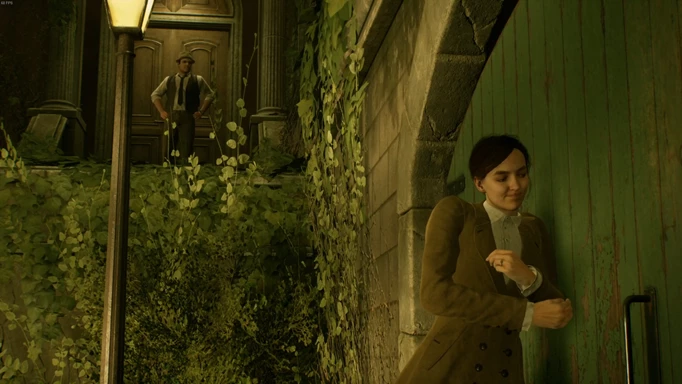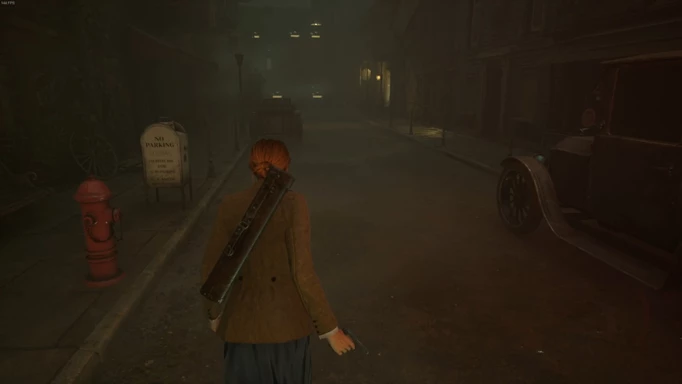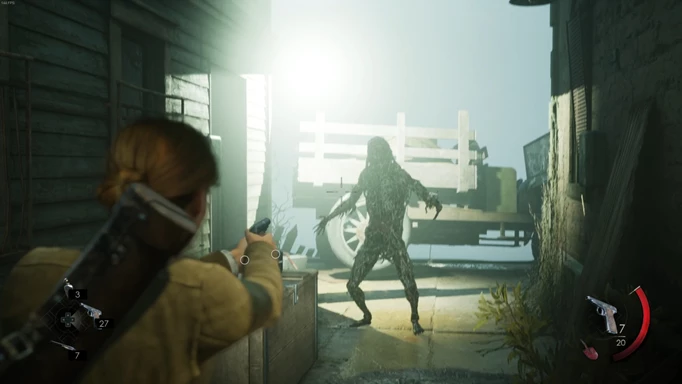Alone in the Dark review: Haunted by heritage

Horror remakes are all the rage in modern gaming, with recent years treating us to reimaginings of three Resident Evil games and Dead Space. We've even got Silent Hill 2 to look forward to, depending on what you think of Team Bloober, but perhaps the most surprising of all these is the return of Alone in the Dark.
The original Alone in the Dark created the foundation of the survival horror genre as we know it today, and while it wasn't until 1996's Resident Evil that the traditional mechanics and gameplay ideas of the genre would be cemented, that foundation had some strong legs to hold it up.
Skulking around in the dark, exploring nonlinear areas for key items, solving puzzles, and fighting tough enemies with limited resources - it was all born here. Now, over 30 years later, players get to explore Derceto Manor all over again from a new perspective inspired by those other remakes. However, the final product doesn't go down as smoothly as its counterparts.
GGRecon Verdict
Alone in the Dark is a tough game to review, and one I imagine my feelings about will wax and wane just as frequently as the tides come in and out. I feel mixed on nearly every aspect of the experience, and ultimately I'm not sure I can say any one part of it hits the lofty heights of some of its predecessors.
The game certainly gets better as time goes on, and the story is well-told enough that it's worth experiencing for survival horror fans. However, it comes with the caveats that the overall gameplay leaves a lot to be desired, and its survival horror contemporaries just do a better job on nearly every front.
The New Nightmare

 Click to enlarge
Click to enlargeMuch like the original, Alone in the Dark is set during the Great Depression in a Louisiana plantation-turned-sanitarium called Derceto Manor, and sees you play as either private detective Edward Carnby, or the wealthy niece of a patient there, Emily Hartwood.
Emily's uncle Jeremy has gone missing, causing her to hire Edward to help track him down, but as they arrive at the manor, quickly it becomes obvious that something is off and the place is home to something sinister.
Unlike a good deal of survival horror games, the story takes a front seat here, and this is backed up by the decision to cast A-list actors in the role of the two protagonists. David Harbour and Jodie Comer play Edward and Emily respectively in their debut video game roles, and it immediately adds extra weight to the plot.
I'll admit I wasn't initially convinced by either actor during the opening hour, but as the story grew, and I began to understand what it was trying to achieve, their more understated performances ended up making more sense.
Alone in the Dark isn't loud, in-your-face horror. It's a slow-building mystery that borrows from pulpy, occult fiction and Lovecraftian horror. Within this context, the protagonists are heavily grounded, contrasting the overtly weird characters you'll meet, the wild situations you'll find yourself in, and the constant feeling that something is just off about this place and all the people in it.
Your choice of whom to play also doesn't change up the game dramatically. Only one section is entirely different for each character, but this is a key story moment of introspection that's worth experiencing with both protagonists. You don't quite get the full story without both playthroughs and the game's themes of grief, trauma, and sacrifice don't really land without the context of both these moments.
Hit or miss

 Click to enlarge
Click to enlargeWhen it comes to the gameplay portions of Alone in the Dark, it's quite hit or miss, and it's evident that the relatively small team at Pieces Interactive didn't have the time to fully deliver on its aims. The general movement and aiming feels janky and unsatisfying, and while you'll probably get used to it in a 'Stockholm Syndrome' sort of way, it was another part of the experience that made those opening hours painful to get through.
Add on the wonky animations, how easy it is to get stuck on the environment, and the fact that the rural Louisiana portions of the game look dull and washed out compared to everything else - and you don't get a strong first impression. I can see many players checking out quickly, but it's a shame because the game definitely gets stronger as it goes on, and I ultimately enjoyed my time enough that I'm glad I played it despite the general issues I have.
The survival horror loop is standard for the genre, but it varies depending on the section of the game you're in. When in the Derceto Manor, there is very little combat or anything material to be afraid of - it's the reflective time when you can solve puzzles, and ponder story moments or documents you've picked up. The manor is small but full of character, making it a good central fulcrum for which the other locations pivot around.

 Click to enlarge
Click to enlargeBetween this, you'll encounter anomalies which transport you to new locations that are sometimes half the globe away, which is where combat gets a more pivotal role. Most of these varied locations look great, and they come with their own unique atmospheres that don't let you get comfortable. These are more linear on the whole and contain most of the enemy encounters, where you can shoot them, sneak past them, or just run away.
I appreciate this gameplay separation, but it doesn't make up for the fact that combat still doesn't feel great to take part in and the enemies have generic designs. The ones you encounter the most just look like human-shaped blobs, with some having extra flesh packed on to denote that they need a few extra bullets.
One of the bigger issues, however, is that Alone in the Dark is just never particularly scary in its moment-to-moment gameplay. The most horrifying parts of the game were told within the cutscenes for me, and nothing else ever managed to approach those, no matter how dark it was, or how many enemies I was dealing with at once.
The Verdict
Alone in the Dark is a tough game to review, and one I imagine my feelings about will wax and wane just as frequently as the tides come in and out. I feel mixed on nearly every aspect of the experience, and ultimately I'm not sure I can say any one part of it hits the lofty heights of some of its predecessors.
The game certainly gets better as time goes on, and the story is well-told enough that it's worth experiencing for survival horror fans. However, it comes with the caveats that the overall gameplay leaves a lot to be desired, and its survival horror contemporaries just do a better job on nearly every front.
2.5/5
Reviewed on PC. Code provided by the publisher.
